Croatian President Cancels Visit to Russia
ZAGREB, June 22, 2020 - Croatian President Zoran Milanovic has cancelled his visit to Russia due to a fault on the government plane and will not be able to attend the Victory Day parade in Moscow on June 24, his office said on Monday.
"President Milanovic has cancelled his trip to Moscow because of a fault on the government plane which cannot be repaired by the planned date, and there are still no commercial flights to Russia," presidential spokesman Nikola Jelic told Hina.
Milanovic is currently on an official visit to Montenegro, after which he was due to travel to Moscow for the Victory Day parade. The parade was to have taken place on May 9, but was cancelled over the coronavirus pandemic and rescheduled for June 24.
On the margins of his visit to Moscow, Milanovic was due to meet with Russian President Vladimir Putin.
President: Present-day Croatia Wouldn't Have Existed Without Antifascist Struggle
ZAGREB, June 22, 2020 - President Zoran Milanovic said in his congratulatory note on Monday on the occasion of the national Antifascist Struggle Day that present-day Croatia would not have existed without the WWII anti-fascist resistance movement in the country.
Croatia marks Antifascist Struggle Day on June 22 in memory of 22 June 1941 when the first antifascist unit was formed in the Brezovica forest near Sisak in the then occupied Europe.
The Croatian president writes in his message posted on his Facebook account that "Antifascist Struggle Day revives memories of "the unique uprising in 1941, the uprising of our people, who were ready to say 'no', before all others in the then Europe occupied and destroyed by Fascists and Nazis."
He underscored that the participants in the first unit, set up in Brezovica Forest, enabled their followers in the months and years to come, to grow into the Croatian people's antifascist army.
"It was an army that fought for freedom, an army that ended the war on the right side, that is on the victorious side, which was important for the survival of the Croatian state," Milanovic writes.
"The good defeated the evil then, we chose a difficult path, but, let me repeat, we chose the right side as we did many times before and after that," the president said in his message.
This is our Croatian history about which our children should know. We can discuss that, but we cannot negate or deny that he added.
Present-day Croatia is a democracy and the country of the Croatian nation that respects all its citizens regardless of which minority they belong to, this is a state defended during the Homeland War, he added.
Milanovic: Zagreb Banner Is Hate Speech
ZAGREB, June 13, 2020 - President Zoran Milanovic said on Saturday that a banner displayed in Zagreb which insulted and incited to ethnic violence against Serb women and children constituted hate speech and not a misdemeanour against public order and that such things should be criminalised.
"As for the model of punishment, such things should be regulated much better legally. This thing yesterday wasn't a misdemeanour against public order and peace, that was hate speech. And as long as the police treat that as a misdemeanour, such things will happen," Milanovic told reporters.
He added that neither the police nor the courts were to blame as they had no other legislation.
"The law is what it is. In my opinion, such things should be criminalised. This is no misdemeanour. Which doesn't mean that every criminal offense should result in imprisonment, but it's a criminal offense because its level of danger, violence and the damage it can cause is such that it deserves bigger and more precise attention by the legislator."
The president said the law should more clearly define fascist and Nazi salutes and clearly describe such hate speech as well as punish it because that would make the job of the police and the courts easier.
He said it was good that the state responded in this case because it was best if the state-protected all citizens by a clear, transparent, and recognisable protection system, including law enforcement.
As for what the banner displayed by some football fans said, the president said they would probably realise very soon that not even one percent of Croats supported what they wrote.
Election debates are good
Speaking of debates ahead of elections, Milanovic said those between representatives of the strongest political parties were a good thing. "It's good that they are held, that one can hear and see who are the people competing for the most responsible and most difficult job in the state, that of prime minister."
He said electoral rolls would show if he voted in the July 5 parliamentary election, adding that they should be public since making them so would not undermine the secrecy of the vote.
He once again called on as many citizens as possible to vote. "That's your right, it's not an obligation. It's not a duty and not voting is not punishable, and I won't tell you that you should vote so that later you don't complain about who is governing you... Just vote. I think that's better for the state."
Speaking of the ongoing campaign, the president said it brought nothing new but that he did not like it when "you're lying" was being said too much. "In this campaign, I may have heard it more than before," he said, adding that it was deplorable.
Milanovic said he was not for reducing the number of ministries as that changed nothing "if the positions and the people who go with those positions in terms of duties and scope of activity stay the same."
INA privatisation study unnecessary
Commenting on an investigation into former health minister Sinisa Varga (SDP) for allegedly commissioning unnecessary studies worth HRK 200,000, Milanovic said it was "a commendable effort."
He went on to say that a study on the privatisation of the INA oil company "is unnecessary. Will anybody be criminally accountable for that? And for talks and negotiations during an election campaign when the government can't make any moves which have financial repercussions?"
He said that after parliament was dissolved and an election was called, nothing should be done that could have financial consequences. "Nothing, aside from paying people's wages and incentives if they are envisaged."
Croatia Diva Lisac Releases Statement From Seclusion: Impersonators Emerge
After two days of relentless press coverage, Croatia diva Josipa Lisac has gone into seclusion after releasing a statement that she would no longer comment on her unforgettable interpretation of “Lijepa nasa domovina”, the Croatian national anthem at the inauguration of Zoran Milanović.
She also declined to comment on the recent criminal charges filed against her for allegedly violating the reputation of Croatia through her interpretation of the national anthem. While the inauguration of Croatia’s fifth president has been nearly forgotten, Lisac’s otherworldly interpretation of the hymn has taken on a life of its own.
Croatia Diva’s Male Admirers Post Impersonation Videos
Some of Josipa Lisac’s male admirers, seeing an opportunity, are emerging with interpretations of the icon’s performance, which they are posting on social media.
Marin the Unknown
DARE TV | Impersonation begins at 0:20
Lisac Releases Statement Through Union and Record Company
Here is a translation of the Josipa Lisac’s statement, released by the HGU (Croatia Musician’s Union) and Croatia Records, which appeared today on her Instagram and Facebook accounts:
“By this statement, we are appealing to all media and debate participants on social networks, who have been relentlessly discussing the national anthem and the performance of the celebrated music giant, Ms. Josipa Lisac, for two days now. Unfortunately, this is a complete disregard for the artistic freedom and creation of a musician whose style is adored by every generation and seen as one of the greatest legends of our domestic music scene. It is clear to every well-intentioned person that this is not a matter of insulting the national anthem. Ms. Josipa Lisac’s style and way of interpreting (music) is widely known, and this situation is further proof that we live in a society where basic human and cultural values are on shaky ground, as is our manner of communication.
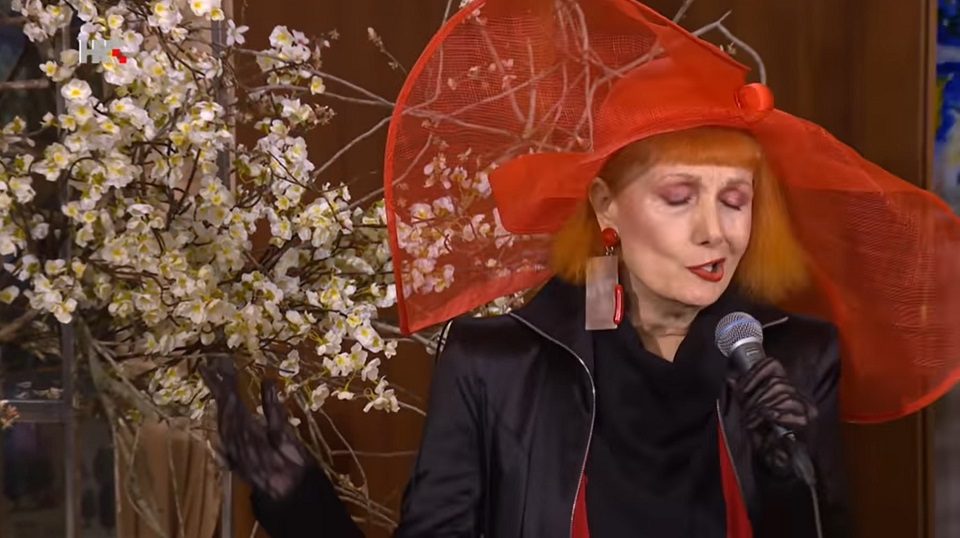
Lisac: No Comment on Inauguration Performance Reactions
At the request of Ms. Josip Lisac, we would like to inform you that she will no longer comment on reactions to her performance of the Republic of Croatia's national anthem at the inauguration of President Zoran Milanović.
Nor will she comment on criminal charges or any similar forthcoming reactions from individuals, associations or institutions, regardless of the medium in question. The past couple of days have been extremely demanding on her, so please keep her privacy in mind, especially since she has always cooperated with the media. She appreciates the support and the fact that the media have conveyed to everyone a real picture of the current state of our society through their reporting.
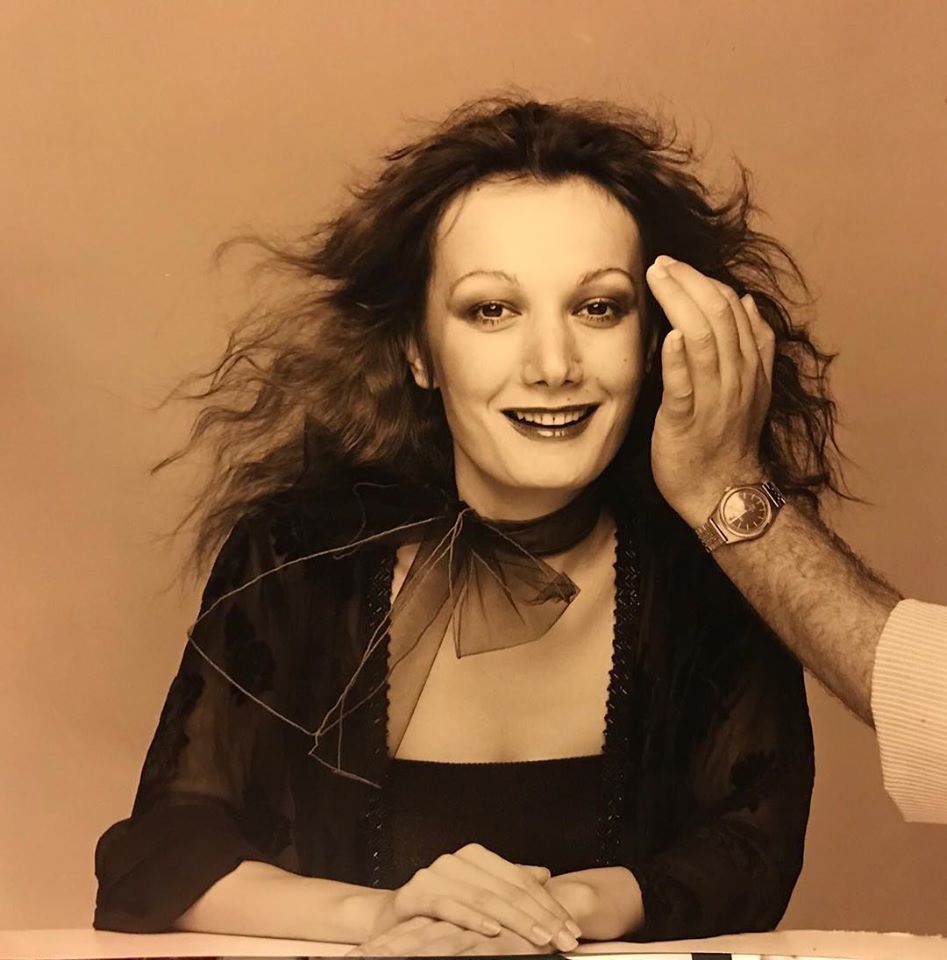
Award Winning Musician Will Receive Porin Lifetime Achievement
Josipa Lisac, recently turned seventy years of age, and in her 53 years in the industry, has recorded many exceptional pieces of music, for which she is still revered at her numerous concerts. She is also one of the most award-winning musicians of all time and has won as many as twenty-two Porins for her achievements along with her associates. This year at the Porin ceremony in Rijeka on March 27; the Board of Directors will award her a Porin for her lifetime achievement.
Josipa Lisac is a truly unique figure on the Croatian music scene, and a musician worthy of respect and admiration.
"It's all music, and music it is, or it is not."
Josipa Lisac
Statement signed by Želimir Babogredac, Director of Croatia Records and Nikša Bratoš, President of HGU.
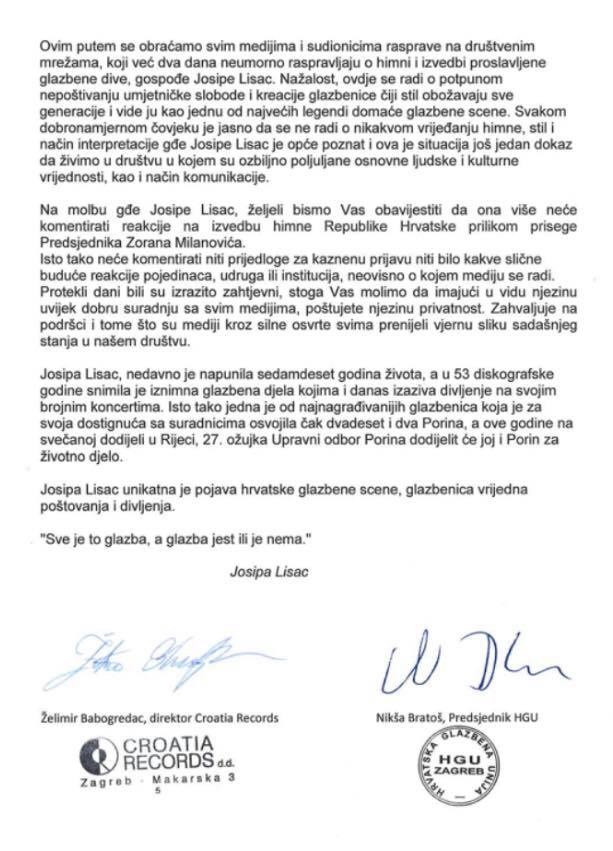
Follow updates on reactions to Josipa Lisac’s unforgettable performance and the pending criminal charges against her here.
Croatia President Milanovic Inauguration: Gay Icon Eclipses Modest Event
The conversation with my Uber driver took a familiar turn once he detected my American accent. I was on my way to the inauguration of Zoran Milanović, the fifth president of Croatia. It was my first presidential inauguration.
Of course, he wanted to know what I thought about living in Croatia and my answer was typically positive. But, it’s too bad so many people are leaving. He had traveled the world in his former profession, and assured me that new people, immigrants, would take their place and the country would be even better because of it. Croatia could benefit from some diversity, he suggested.
Uber Driver: Someday Croatia Will Be Like Poland
We agreed that, perhaps, one day Croatia would be more like Poland. In the years following their entry into the EU, hundreds of thousands of Poles left their homeland for more financially rewarding jobs in Western Europe. In the meantime, the Polish economy has strengthened, and people are coming back.
I had applied in advance to attend the event at Pantovčak, the home of the Croatian president. The driver dropped me off at the bottom of a gated sloped lot manned by imposing Croatian servicemen in camouflage uniforms and red berets. One kindly directed me to stand under the eave so as not to get wet, as there was a light drizzle, while they verified my name on the attendance list. Within minutes, I had boarded a blue van with three other journalists which drove us down a winding road into a wooded gulley.
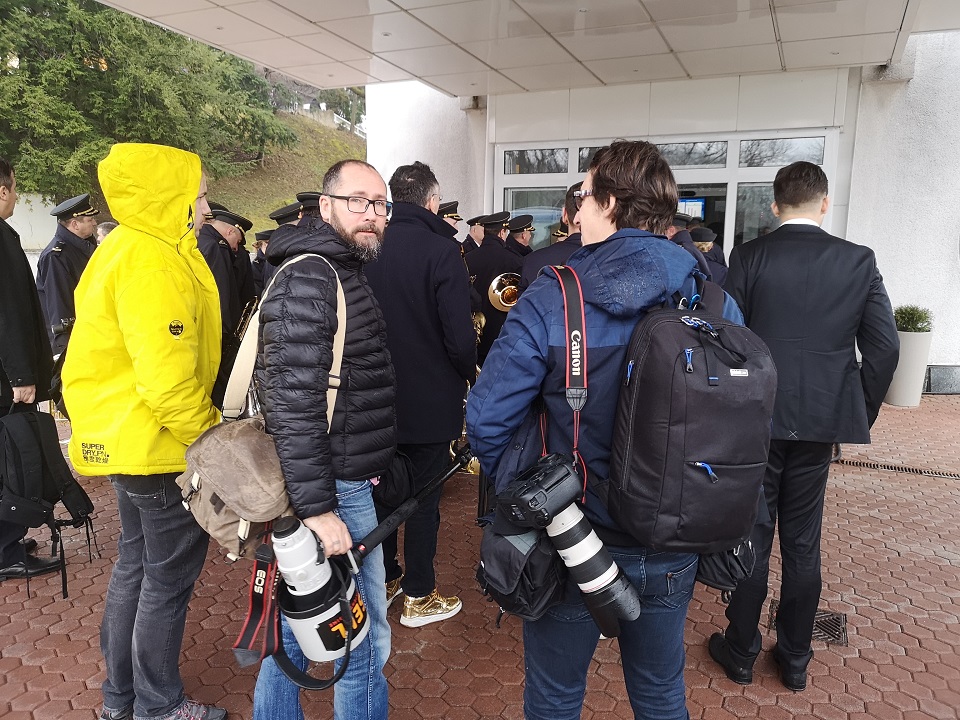
Security check line at the entrance of Pantovčak, the Croatian presidential home.
There were about 30 military band members and press waiting at the entrance to pass through security, which went rather quickly, much like the pre-check line at a US airport. Then we proceeded up a few flights of outdoor stairs to another heavily windowed thick modern building. Several TV journalists were set up in the first room, which featured a dramatic curved staircase. The second room, where the inauguration would take place, had a few dozen chairs. Clearly, we could not all fit into that room. I followed the line of journalists into a third room, with several large round tables and long table where reporters had staked out space for laptops.
Go to Pantovčak, Watch Live Inauguration on TV Monitors
There were two TV monitors. Those were for us, I concluded disappointedly, and wondered why I was even there. I’d have had better views watching TV from home. There were a few familiar faces: a reporter for a left-leaning portal wore a dashing suit with a silk patterned neck scarf which puffed out of his unbuttoned shirt, resembling a Southern Italian tycoon. And I didn’t realize that one correspondent from a popular news channel was so incredibly tall.
Paul Bradbury, Total Croatia News Editor-in-Chief and my boss, arrived separately, and texted that he had made the 11:00 deadline to get in. Whew. Shortly thereafter, the security officer alerted us that the door to our room would be closed until the end of the event. There were a couple of trays of Turkish coffee in cups with a pitcher of milk and packets of sugar. Those went fast. There were no bathrooms.
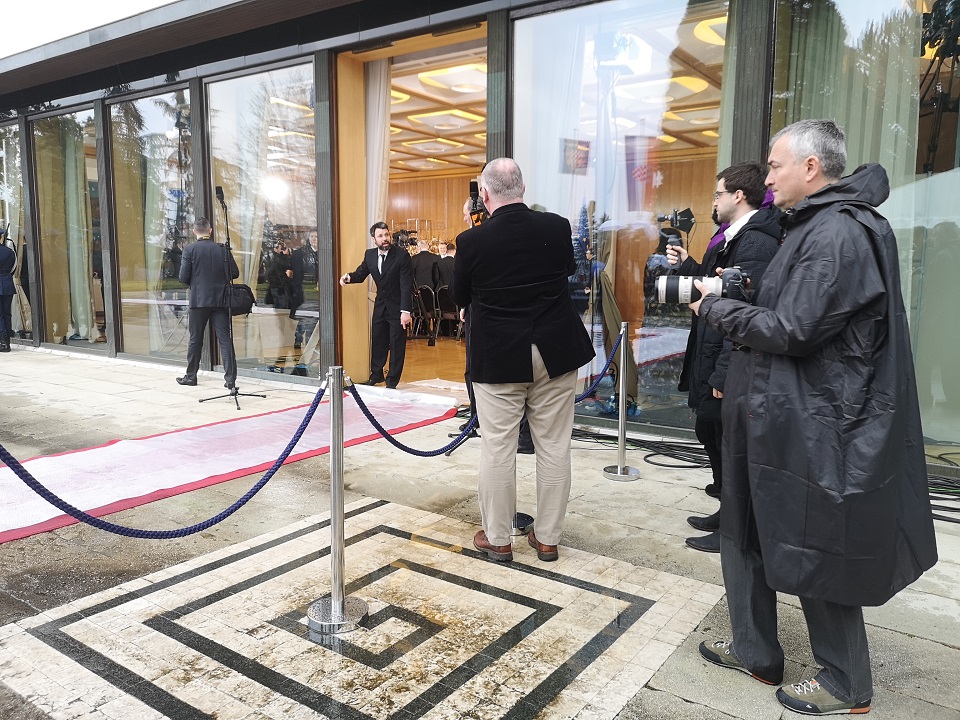
Paul getting shots of the inauguration room. That's as close as we could get.
Once Paul arrived, we headed outside to take pictures of the virtually empty terrace in the drizzle. There was a raised platform for selected TV networks, which provided a direct view of the inauguration room, through the floor to ceiling windows. That overlooked an L-shaped red carpet covered by clear plastic. To the left of the platform was a canopy for the small band to play. For whom, I wondered as I scanned the empty wet cement.
Respect for Space and Photo Views Among Journalists
Audis began pulling up alongside the vast cement terrace, and word passed around that soon-to-be former President Kolinda Grabar Kitarović was in one of them. I was pleasantly surprised at how respectful fellow journalists were of everyone’s space. I lost count of the number of times my counterparts turned around to confirm that they were not blocking my view…me with my Android. And it seemed that once I had staked out a place to take pictures, that place was mine. A photographer alerted me to move aside temporarily for a TV reporter. Once she was finished, I returned to my spot upon his encouragement. No elbowing. No clamoring. How civil.
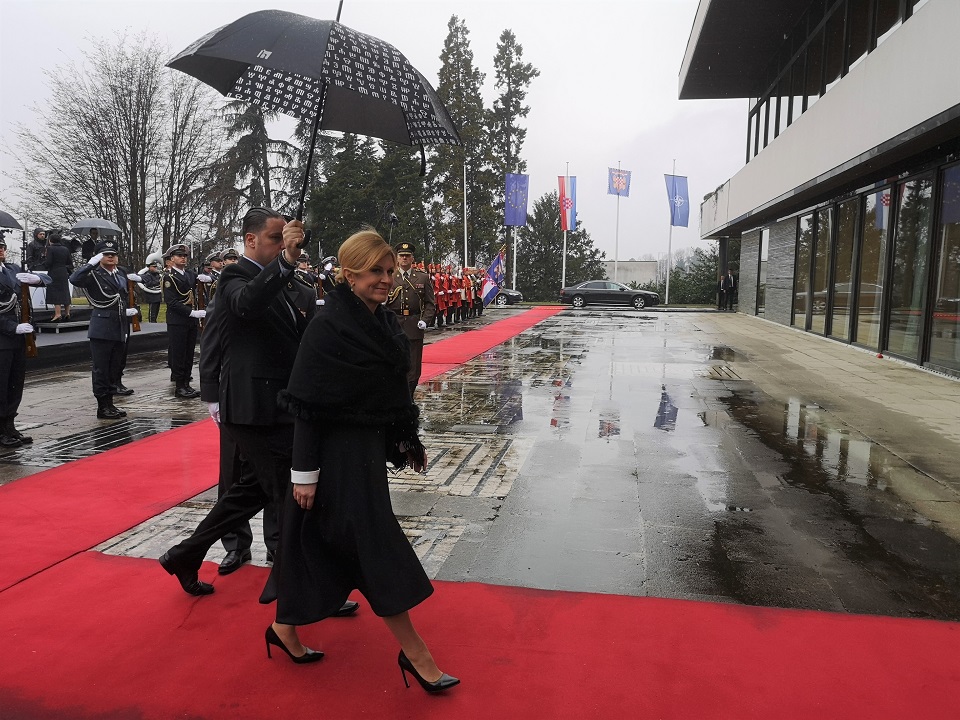
Kolinda Grabar Kitarović entering Pantovčak for the last time as president.
Kolinda, who lost her bid for a second term, arrived looking solemn and resolved. She paused to pay respect to the troops and followed the soaked red L-carpet in spiked heels into the small enclosed ceremony space. Five years ago, by contrast, her inauguration was a major affair held in St. Mark’s Square open to the public and attended by foreign dignitaries.
The security guard herded us back inside to the press room, where we watched the rest of the brief ceremony on two monitors. I had briefed Paul about Josipa Lisac, and had been surprised to find out that she would be performing at Milanović’s swearing in – especially since he had revealed in a Nova TV debate that he was a fan of New Wave music from the early 80s.
Croatian Gay Icon Delivers Curious Rendition of National Anthem
Lisac’s presence and vocals are difficult to characterize. She turned 70 on Valentine’s Day. Since catapulting into her 40s, she has become as well-known for pushing the limits of fashion and her gravity-defying geometric fire-orange hair sculptures, as she is for her “unique” voice. She’s considered an icon in the Croatian gay male community, with one young reporter excitedly revealing in a recent interview that he aimed to impersonate his favorite diva.
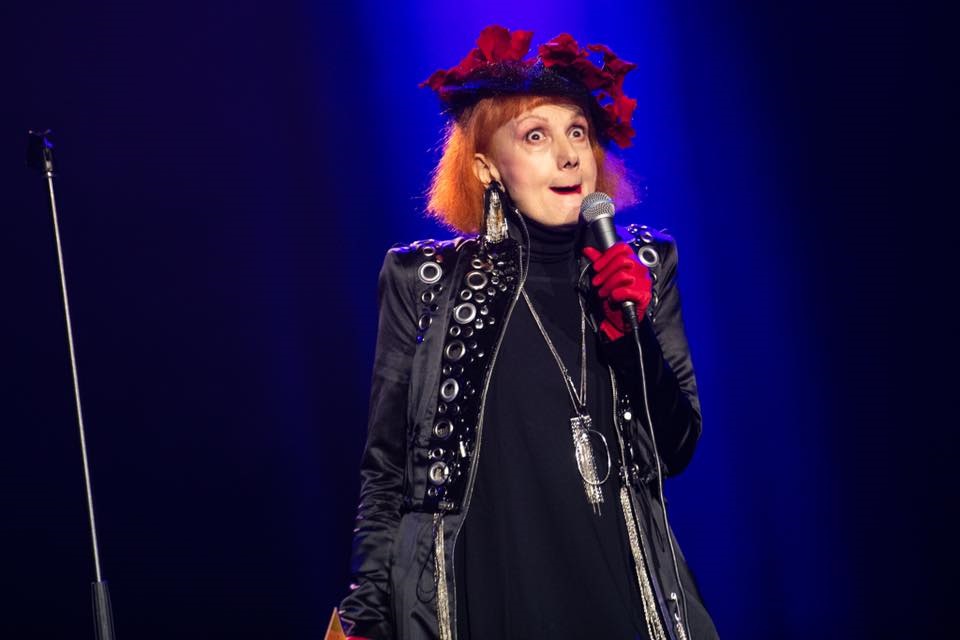
Josipa Lisac in concert | Facebook
However, paying homage to Lisac would be a formidable, if not impossible, task. Most gay icons, like Cher or Liza Minnelli, leave drag queens a little material work with. Lisac, by contrast, seems committed to preemptively outdoing her prospective imitators. There simply aren’t many mannerisms or wild outfits left to accent or exaggerate.
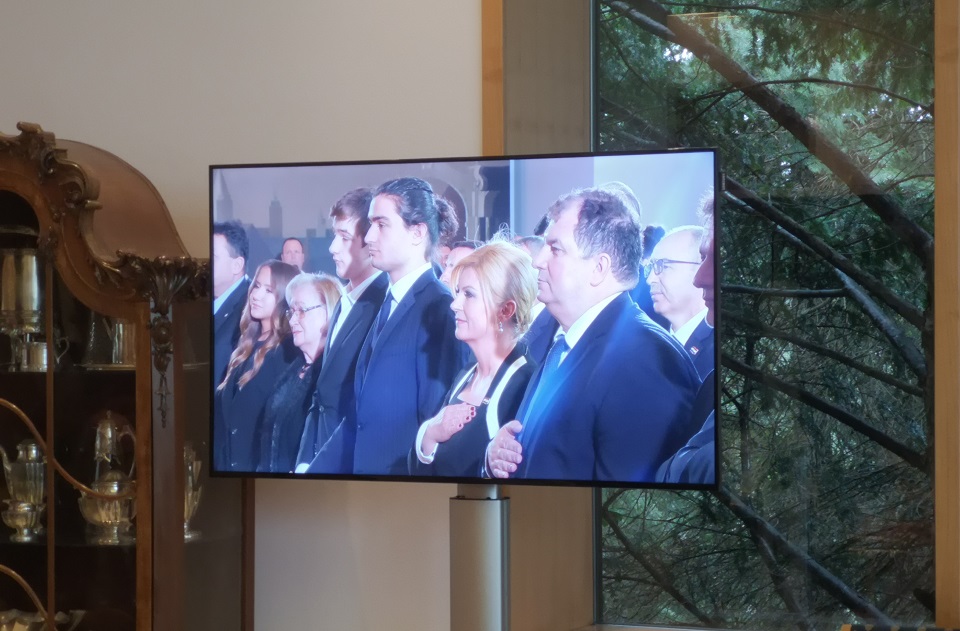
Watching reactions to Lisac's rendition of the national anthem on the TV monitor.
While loyal followers might identify with her emotive vocal gymnastics, some critics are inclined to compare her singing to a cross between Cher...and a hound, among other beings. She opened the intimate affair by performing the Croatian national anthem, and while I should have been paying respect to the land of my ancestors, I found myself marveling at Lisac’s unusual delivery and rubbery facial contortions on the TV monitor. And did anyone else see the new president close his eyes during this…rendition? Paul, in typical English fashion, is somewhat restrained in his visible reactions. But even his eyes widened through that molasses-paced otherworldly performance.
Milanović Coasts Through: Reviews Political Campaign Points
Perhaps dazed by his chosen guest’s abstract interpretation of the national hymn, the new president seemed momentarily confused about his next move. Was there something in the brown wooden box? Wait, no. After being prompted, he headed over to another table to sign a very official-looking document. His brief speech touched on familiar campaign themes: anti-corruption, quality education for all, cooperation with neighbor states, the wars are over and minority rights.
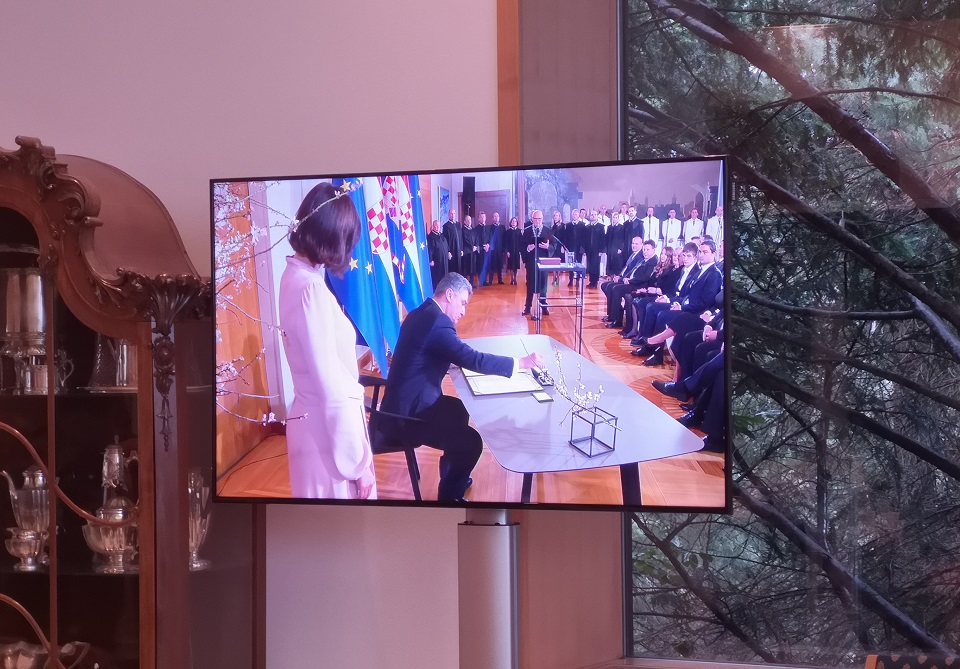
A signature makes it official. | Sanja Musić Milanović and Zoran Milanović
"Our republic needs every person and every person in Croatia must be given a chance to find their way and their place, to live in dignity from decent work. This is a home to us all, to us who live here and to the generations to come, as well as to those who are yet to return," Milanović concluded.
As we left the press room for the entry, the band played “Tvoja zemlja” (Your Country), a song which, more than any other (in my opinion), epitomizes the Croatia of yesterday and today. Admittedly, it’s the one Croatian standard that always leaves me a little misty-eyed.
"Here you will always find a home,
A heart that beats for you,
Arms that guide you,
A mother that understands you,
You will know everything you need to know.
You will know the pain of crying
When your country suffers;
But above it all
You’ll surely realize
how much this land means to you.
This is your country, here you build a home,
Here is an old foundation, here beneath your ruins.
Foreigners and storms have ripped her apart,
But she’s still here as long as we’re here.
You'll be blessed just like us.
A king who knows no crown,
But within his soul
Like everyone among us
You'll be as glorious as we are."
‘No photos past the first stair!’
The security guard corralled us through a narrow, roped corridor to the left of the curved grand staircase. Then she announced that no photos were allowed after the former and new president ascended the first stair of the long winding staircase. Everyone protested, but the cameras stopped the second the former president and her victor reached the second step. Limited photo ops ensued as other prominent figures exited the small gathering.
A small cluster of us remained reined in by a blue velvet rope. After some confusion, the security guard released us and we headed back through the entrance, where we awaited more photo ops of politicians getting into cars.
"Are you satisfied (with your performance)?" One reporter called out to Josipa Lisac as she unassumingly entered her ride. She declined to comment.
Paul looked at his phone. It was 12:53. The entire affair had lasted less than an hour. He grabbed some prime footage of Milanović and Kolinda hugging and exiting together. Then, we slowly made our way through the expansive hilly wooded grounds to the gated entrance.
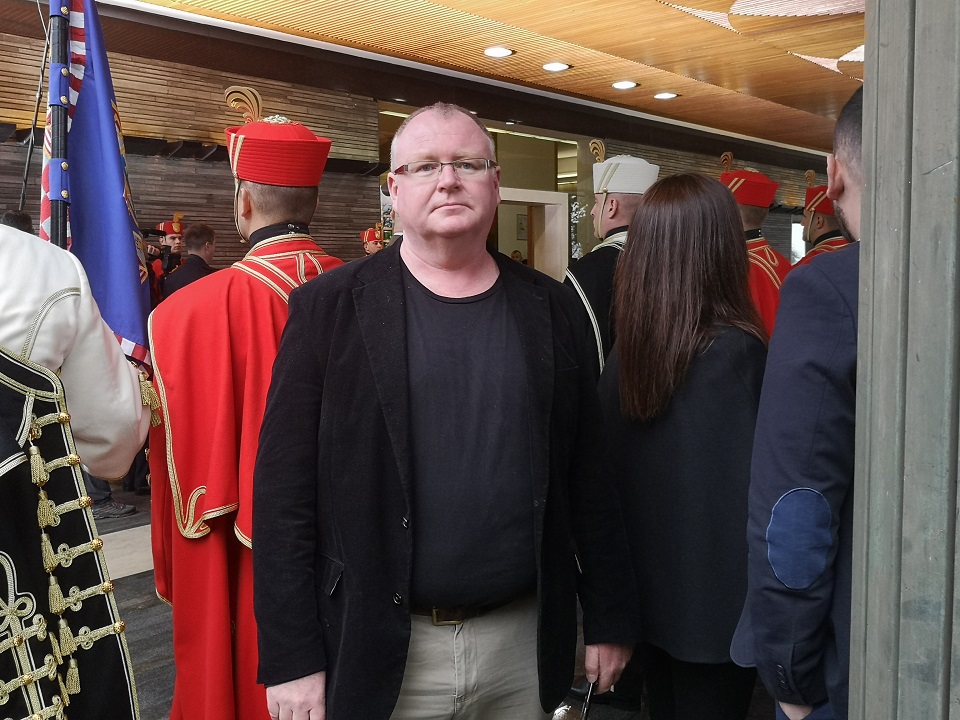
Paul at the entrance of Pantovčak, the home of the Croatian president.
According to reports, the cost of Milanović’s inauguration was one-sixth of that of his predecessor’s. For those enchanted by pomp and circumstance, it was likely a disappointment. But, like most inaugurations, it will soon be forgotten and surpassed by what the president, within the limited scope of his office, can do for the country.
Check out Paul Bradbury's account of the ceremony with some great videos here. Follow the activities of Croatia's new president on Total Croatia News here.
Croatian Zoran Milanović First Former Prime Minister Elected President
Although only 53 years old, Croatian President-elect Zoran Milanović is already a political veteran. Since Croatia's independence, he is the only politician to be elected to two of the most important state functions, first as prime minister and now president.
He was born on October 30, 1966 in Zagreb. In private conversations, he likes to point out that Zagreb shaped his identity, but was also intrigued by his family history, according to Robert Bajruš/Jutarnji List on January 6, 2020. Therefore, Milanović researched archives from Austrian barracks and the Sinj monastery in a quest for information on his ancestors and their life paths. Zoran Milanović's family is from western Bosnia and arrived in the Sinj region as part of a mass migration led by Franciscan Friars in 1687. His mother Đurđica Matasić's family has lived in Sinj for almost two centuries.
Father Held Key Zagreb Government Positions
His father, Stipe Milanović, performed several important roles during the socialist regime: he was Cabinet Secretary to Miko Tripalo, a Zagreb city council member and chaired the Vatroslav Lisinski Hall Construction Committee. In the early 1990s, he joined HDZ (Croatian Democratic Union) and became Assistant Minister to Vlatko Pavletić.
Milanović's claim that his grandfather was an Ustasha member (Croatian WWII Fascists) was one of the more interesting developments in the 2016 election campaign. He was referring to his mother Đurđica’s stepfather, Petar Plišić, but had kept silent about him until then.
He graduated from the Faculty of Law in Zagreb in the early 1990s where he was an excellent student. He received the Rector's Award and participated in the "Telders" competition in public international law at The Hague.
Began Post Law School Career in Foreign Diplomacy
Milanović landed his first job at the Commercial Court in Zagreb and then the Ministry of Foreign Affairs in 1993, where he arrived upon the recommendation of Ivan Šimonović, professor at the Faculty of Law and Permanent Representative of the Republic of Croatia to the UN. He became advisor to the Croatian Mission to the European Union and NATO in Brussels in 1996 and completed a postgraduate certificate in European Union law there two years later.
He joined SDP (Social Democratic Party of Croatia) immediately after his return to Zagreb in 1999. After SDP won the January 3, 2000 elections as part of a coalition, he was entrusted with a position in communications with NATO. Three years later, he was appointed Assistant Minister of Foreign Affairs under Tonino Picula. However, he left diplomacy and was brought onto the SDP Executive Board at the invitation of Ivica Račan after the HDZ won the 2003 elections.
Assumed SDP Leadership Role After Račan
The SDP party membership overwhelmingly chose Milanović as their new leader when Ivica Račan died in 2007. He had defeated Željko Antunović, Milan Bandić and Tonino Picula; the party’s old guard. While Račan had not considered him his successor; within a month Milanović had taken control of SDP and set about overthrowing Ivo Sanader.
Diana Pleština, widow of the former SDP leader, spoke about the Račan-Milanović relationship. While she has always thought well of Milanović; she also noted:
"Ivica Račan understood that Milanović was young and well-educated, and had experience communicating with the outside world, but he was not referring to Zoran Milanović in the phrase 'New SDP Force'. Instead he was referring to Milanović along with other members of the party. Therefore, the ‘New SDP force’ was not referring to one person, but an overall proposal to continue the rejuvenation of the Social Democratic Party, and one of those players was Milanović,” Dijana Pleština recalled.
However, he lost to Ivo Sanader in the 2007 parliamentary elections and spent the next four years leading the opposition. During that time, he was able to marginalize the old guard within SDP and surround himself with a new generation of associates including Ranko Ostojić, Siniša Hajdaš Dončić, Rajko Ostojić, Ante Kotromanović, Igor Dragovan and Gordan Maras.
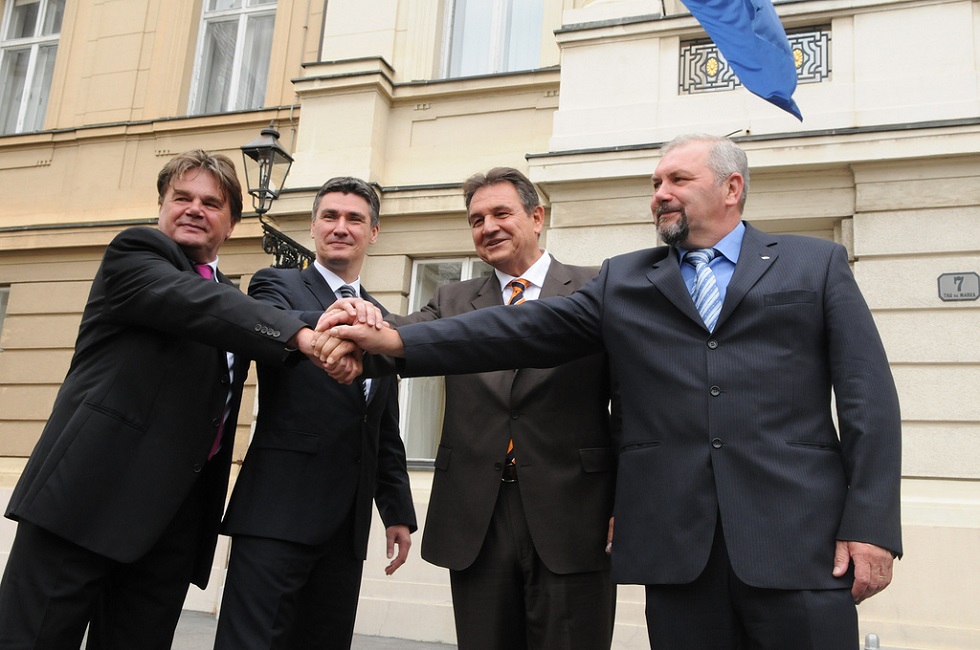
Defeated Scandal Ridden HDZ With Kukuriku Coalition
In November 2011, under Milanović’s leadership, the SDP-HNS-IDS-HSU coalition overwhelmingly defeated HDZ, which had been rocked by a series of corruption scandals. Their coalition ruled Croatia for the next four years. Before that victory, Milanović played a crucial role in the election of SDP presidential candidate Ivo Josipović. Josipović's victory had a strategic effect on the downfall of HDZ and Prime Minister Jadranka Kosor, and subsequent victory of the four-party coalition.
Milanović's political experience did not often reveal itself during his first three years in office. In the face of poor economic performance, he was subject to widespread criticism for refusing to make severe cuts to a bloated and inefficient state administration, which was stifling the economy. In addition, almost nobody believed he could make a comeback after he barely succeeded in expelling Slavko Linić from SDP in June 2014. Those doubts were strengthened after Kolinda Grabar-Kitarović narrowly defeated Ivo Josipović in the 2015 presidential election.
"Who would have thought that we were capable of regaining voter confidence back in January," Milanović recently suggested in a private interview.
Political Personal Evolution and Move to Right
Nevertheless, he changed tremendously and became much more accessible while choosing to remain silent about the confrontation with Linić. Even then, a well-known SDP politician revealed that he had been closely observing Milanović's career for seven years, and denied the widespread belief that the SDP chief was incapable of transforming himself:
"After losing the election to Ivo Sanader in 2007, Milanović realized that he had to change. He succeeded because he strengthened the party with new young talent. I’ve also changed and have begun displaying a better part of my character in interactions with people. That’s why I believe he can also change in a positive way,” claimed this member of government.
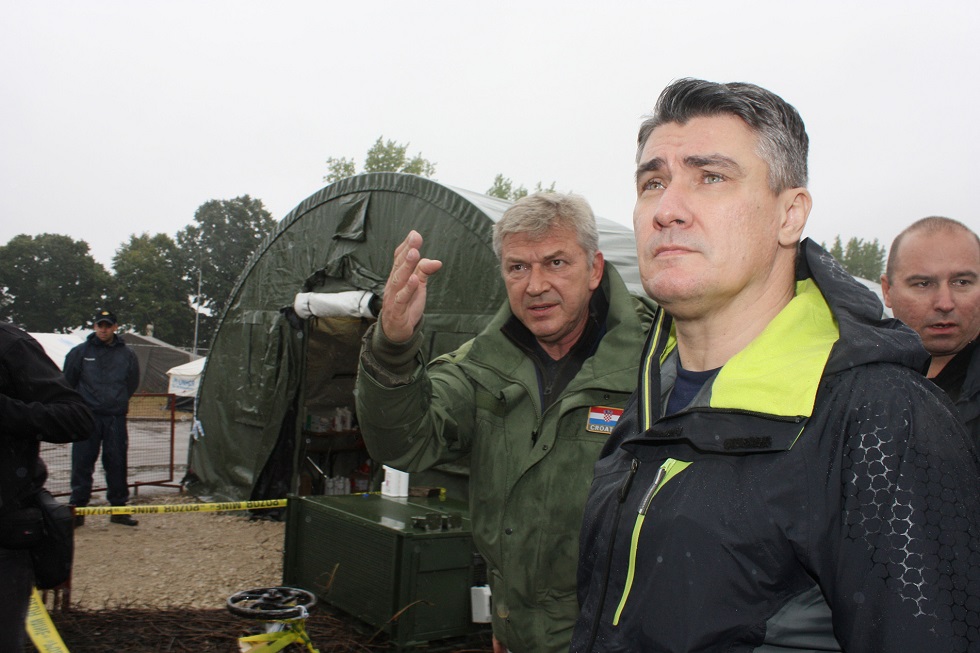
Praise for Franjo Tuđman and Croatian Nation in Knin
After all, Milanović's metamorphosis, which manifested itself in a slight turn to the right, was first noticed in Knin on August 5, 2014 when he gave a speech commemorating Dan domovinske zahvalnosti (Homeland Thanksgiving Day), which suggested a more patriotic direction. It was then that he first came forward with the conviction that his government was a people's government elected by the Croatian nation, comprised of people who are of primarily Croatian background. "As long is that is the case, we will oversee this country and lead it on the right path with Croatian interests in mind," Milanović said.
Milanović also paid respect to the first Croatian president, Franjo Tuđman, "because he was the Croatian president during a most difficult and challenging time."
“We have been waiting for a thousand years to have our own state and are grateful to those who gave everything for our country. For thousands of years we have worked, fought and died for foreigners, who treated us like foreigners, but they are not our enemies today. We are united with them in the EU and are building a better future together,” said Milanović in Knin.
It was the beginning of a 16-month campaign in which Zoran Milanović decided to tackle the stigma of (Croatian) leftists and present himself as a self-aware national leader. A social democrat who respects Tuđman, frequently mentions Croatia and condemns chauvinism then became his election-winning formula.
He also hired PR expert Alex Braun and his government achieved positive economic results in 2015. However, Milanović narrowly lost the parliamentary elections, remained at the helm of the SDP and defeated his old rival, Zlatko Komadin, in party elections.
Withdrawal from Politics After 2016 Defeat
After the fall of Prime Minister Tim Orešković’s short-lived administration in late 2016, Milanović led the People's Coalition into the elections, but lost, and then announced that he was withdrawing from politics.
In November 2016, he founded EuroAlba Advisory. Earlier this year, the media reported that the company's total 2018 revenue was 744,970 HRK (99,700 EUR), about a 20 percent increase from a 2017 reported revenue of 625,000 HRK (83,600 EUR).
Milanović lost his father Stipe and his younger brother Krešimir, who died after a short illness, during his election campaign late last year.
Follow our Politics page to stay updated on the new Croatian presidency and upcoming 2020 parliamentary elections.
The Croatian President Can’t Sing
December 11, 2018 — Croatian President Kolinda Grabar-Kitavorić continued her rambunctious 2018 with a ear-scorching duet accompanying singer Mato Bulić at "Širokobriješj večer", a Hercegovina-loving bacchanal in Zagreb.
#eurovision #zemljootvorise pic.twitter.com/QiCuRIzwkz
— Surf Panda (@Cvrle1977) December 8, 2018
Grabar-Kitarović’s bubbly nature and flamboyant national pride has become the subject of a debate, amongst the media if not the people. Is it “becoming” for a Head of State and politician of her stature to behave this way?
While the President sings, once-proud industries flounder and the government openly questions checks meant to curtail its hubris. Worst of all, Croats continue to leave the country in droves. Even the sweetest Siren’s song may not pull them back.
Is now the best time to sign? Even as a release valve for tense times?
Who could forget her memorable showing at the World Cup in Russia? Oh, those rain-soaked hugs and hop-along locker room celebrations.
Grabar-Kitarović's passionate support of the Croatian national team made her a media sensation. And Head of State most often confused for Ice T’s wife, Cocoa.
Is she substantively raising her country's profile, or simply making a spectacle of herself? Shouldn't the president be doing something — anything — other than singing and serving as the nation's de facto sports mascot? Well... not really.
Few were surprised to discover the president belted another tune, least of all the Croatian public. The Croatian president has showed her penchant for sing-alongs, though being named after a song didn’t give her an angelic voice. Within hours of winning her first election, the President wailed along to the chorus of "Oj, Hrvatska Mati".
(The second verse of the song gives a shoutout to parts of modern-day Bosnia and Serbia... But that’s neither here nor there.)
If it it’s hard to remember Grabar-Kitarović taking unilateral, decisive action on matters foreign or domestic, it's because she can’t. The Croatian president's immense passion and seemingly-perpetual charm offensive reveals an uncomfortable truth: she doesn't have much else to do.
The government and Prime Minister hold sway over all legislative matters, domestic and most foreign. It executes laws, sets economic policy, oversees the administration of government duties… The list goes on. The office Grabar-Kitarović holds was rendered toothless long before she occupied it. What else is there to do but sing?
Following the death of Croatia's first president Franjo Tudman, who weilded enviable power during his time in office, the Croatian Constitution was ammended, transferring a sizable list of duties to the government and parliament.
The remaining piecemeal list of presidential duties often includes the caveat “with the countersignature of the Prime Minister” or requires some form of Parliamentary involvement. The changes mean Croats can elect a president, but not a dictator. Even the few exclusive duties afforded the president have been rendered moot by international treaties and alliances.
Grabar-Kitarović has chaffed at the binds placed upon the office, trying hard to come into direct contact with the electorate via a roving office, often settling far away from Zagreb and the long shadow of the Prime Minister.
It's the Prime Minister who’s hounded by policy-related questions, which Andrej Plenković handles in a manner so matter-of-fact one wonders if his heart rate is somehow fixed between “Snooze” and “Out to lunch.” (Grabar-Kitarović's outsized personality seems to offer a counterweight.)
Grabar-Kitarović, then, is hemmed in by the country’s guiding document in all but a few areas: Matters of national security and the hiring and firing of generals remains the office’s singular domain.
In states of emergency or natural disasters, she can declare martial law and curtail constitutionally-guaranteed freedoms — only if Parliament cannot convene to vote. The president can also dissolve Parliament — upon the government’s request.
Otherwise, Grabar-Kitarović has largely been relegated to ceremonial events, such as the unveiling of statues that hardly the resemble the person memorialized. And homespun outreach to locals, which she's been known to botch in unusual ways.
Grabar-Kitarović’s foreign policy clout, although ostensibly substantial on paper, remains as a figurehead. In practice, she serves as chief diplomat to multinational bodies such as the United Nations, as well as Croatia’s immediate neighbors who aren’t in the European Union. But she's not the first person either German Chancellor Angela Merkel or European Commission president Jean-Claude Juncker will call. Meanwhile, she hasn’t engratiated herself to Croatia’s neighbors either.
Even her recent duet is laced with shadow populism. Herecegovina native Bulić has made a name with sugary pseudo-nationalism celebrating the ethno-Croatian bit of Bosnia. It’s an awkward moment to share a mic with the man — while Bosnia is complaining about Croatia meddling in its affairs.
Grabar-Kitarović may be using the wrong instrument. Because every jersey-clad cheer and song reminds us the office of Croatian president's office isn't so much vox populi as it is "Vox et praeterea nihil." Plutarch’s description of a nightingale: A voice and nothing more.
President Temporarily Moves Office to Dubrovnik
The President will spend five days on tour of Dubrovnik-Neretva County


